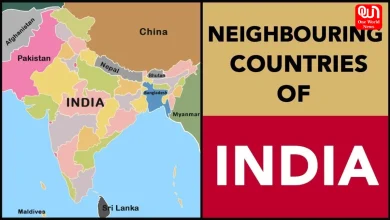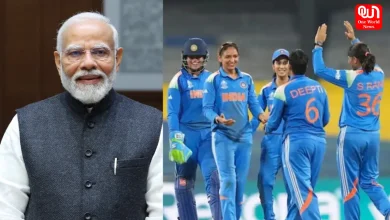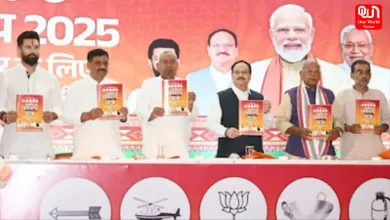Budget Private Schools

Budget Private Schools
Nobel Laureate, Rabindranath Tagore very aptly observed, “All over India, there is a vague feeling of discontent in the air about out prevalent system of education.” Since independence, education in India has attained primacy for all the leading legends. Jawaharlal Nehru, the founding Prime Minister of the country, did not give much importance to individual attainment as he believed that the primary aim of education is to awaken young men and women with inner consciousness and understanding their times. As he said at the All-India Educational Conference, Baradaru, 27 December 1939, “All education must have a definitive social outlook and must train our youth for the kind of society we wish to have.” However, views and perceptions have changed over the time. Manmohan Singh, the former Prime Minister of India, had a different outlook. He believed that education and creative abilities of our children and young people will determine the strength and well-being of our nation.

Picture Link : http://bit.ly/1x9Up83
Despite being one of the fastest growing nations , education in India has suffered as governments over the time have been unable to find a viable solution for mass illiteracy; high school-dropout rates and discrimination on the basis of caste, religion and sex. India is a country infested with the lack of infrastructure for education. However, governments have time and again made progress at improving the status quo. The country has major programmes and schemes running to improve the education standards: Right to Education, National Policy on Education, Mid-day meal, Anganwadi Centres, etc. are all measures to the same issue. These initiatives have been partly successful but only in concentrated areas. Not even a single scheme has shown significant progress nationwide due to bureaucratic bottlenecks.
At the core of educational issues lies elementary education. Low budget private schools have been a key facet of elementary education in India over the last decade and they have also provided an uncontested alternative. These schools have private teachers & private management and therefore, are becoming popular with the poor and lower middle class population. On the other hand, government schools are funded vastly but most of the money is drained by the steep salaries of staff members and teachers. Shockingly, a little is spent on innovation in the education sector. Budget Private Schools (BPS) have added a different dimension and have been successful where the government schools have failed. “There are about 300,000 budget schools imparting education to about 90 million children,” says Mohammed Anwar, Chief Executive Officer (CEO) of Empathy Learning Systems, a Hyderabad-based firm that is setting up a chain of low-cost schools across the nation. About 19% of the total schools in India are BPS and the number seems to be rising with every passing day, showing a tremendous increase in the quantity of education in the country, especially at the grass-root level.

Outreach of education has improved but the quality of education still remains unanswered. English schools are frequently equated with ‘good education’ by low-income groups. The Economic and Political Weekly (October 12, 2002) states that the dropout rate of children for the year 1999-2000 is lower than that of private schools, standing at 2.26 and 7.72 respectively. Government schools are often a synonym for poor quality education. 71.2% people believe that low budget schools are better at imparting education than a government school. There are several issues that have to be tackled to provide sustainable quality education to the children such as, deficiency of highly educated teachers, infrastructure, learning beyond classroom and holistic development. Baird (2009) observes that in some urban areas, for example the slums in North Mumbai, children have to travel two hours away from home to reach the nearest government schools. In rural areas, accessibility is much worse. The aim of providing a ‘running’ school in one kilometre radius is never fulfilled. Where infrastructure is present, teachers are lacking. Where teachers are present, students are lacking. Where students are present, infrastructure is lacking. It’s a vicious cycle that has slowly eaten away the Indian growth that could have been achieved if we had a stable and smooth-running education sector. Centre for Civil Society is an organization which is at the forefront of setting up and conserving BPS in India. On contacting a representative from there, she said, “Our society is working with stir, it is an organization which empowers teachers to be the change makers and with them we are also trying to train teachers to be more helpful.” She added, “The curriculum that we follow is of CBSE and there are no changes between the syllabi of government schools and BPS.”

BPS have been very successful, Empathy Learning Systems Ltd. started by Mohammed Anwar, a self-acclaimed ‘edupreneur’ or educational-entrepreneur, being a prominent example. Prof. James Tooley, an eminent Professor of educational policy from University of Newcastle, has done remarkable work showing importance of BPS. One World News interviewed him and asked him, what would be the repercussions if the government closes down BPS. He answered, “The repercussions will be terrible, and unjust, inhumanely punishing the poor for their choice of school. For, it is the poor who will suffer most. Imagine, you are a poor parent, living in a slum, who has chosen to send your child to a low-cost private school. Why? Because you’ve seen the government school and it is hopelessly overcrowded and the teachers don’t turn up or don’t teach when they should, but make the children do chores or play. The low-cost private school you know is not as good as you aspire to for your child, but it’s certainly better than the government alternative, and that’s the real choice that’s facing you. ”
The question, India faces now, is how to improve the condition of educational institutes in India and what are the things that are needed to be done to ensure a steady growth in this sector?
Have a news story, an interesting write-up or simply a suggestion? Write to us at info@oneworldnews.in







